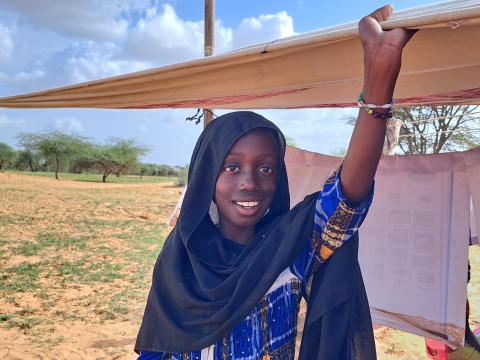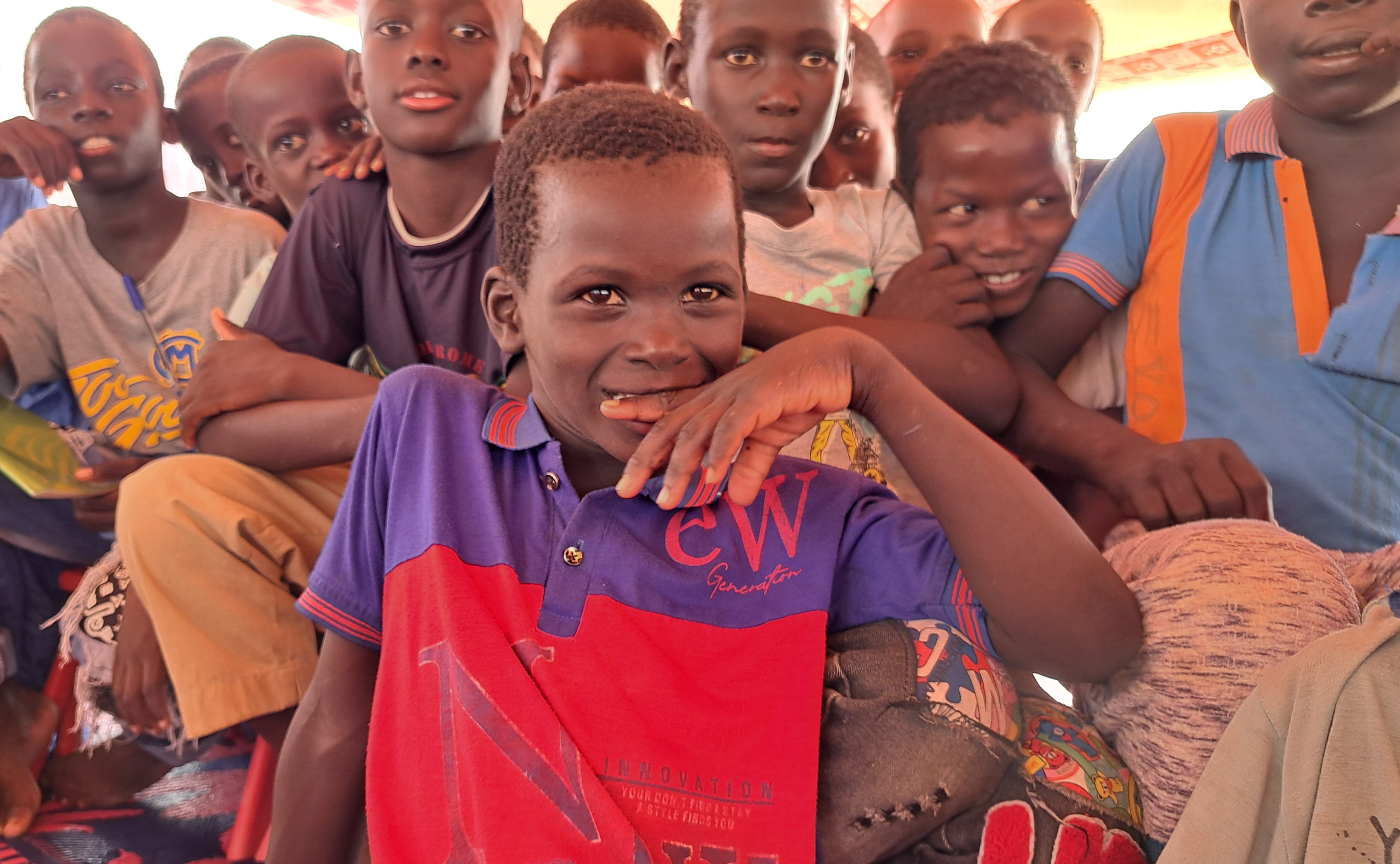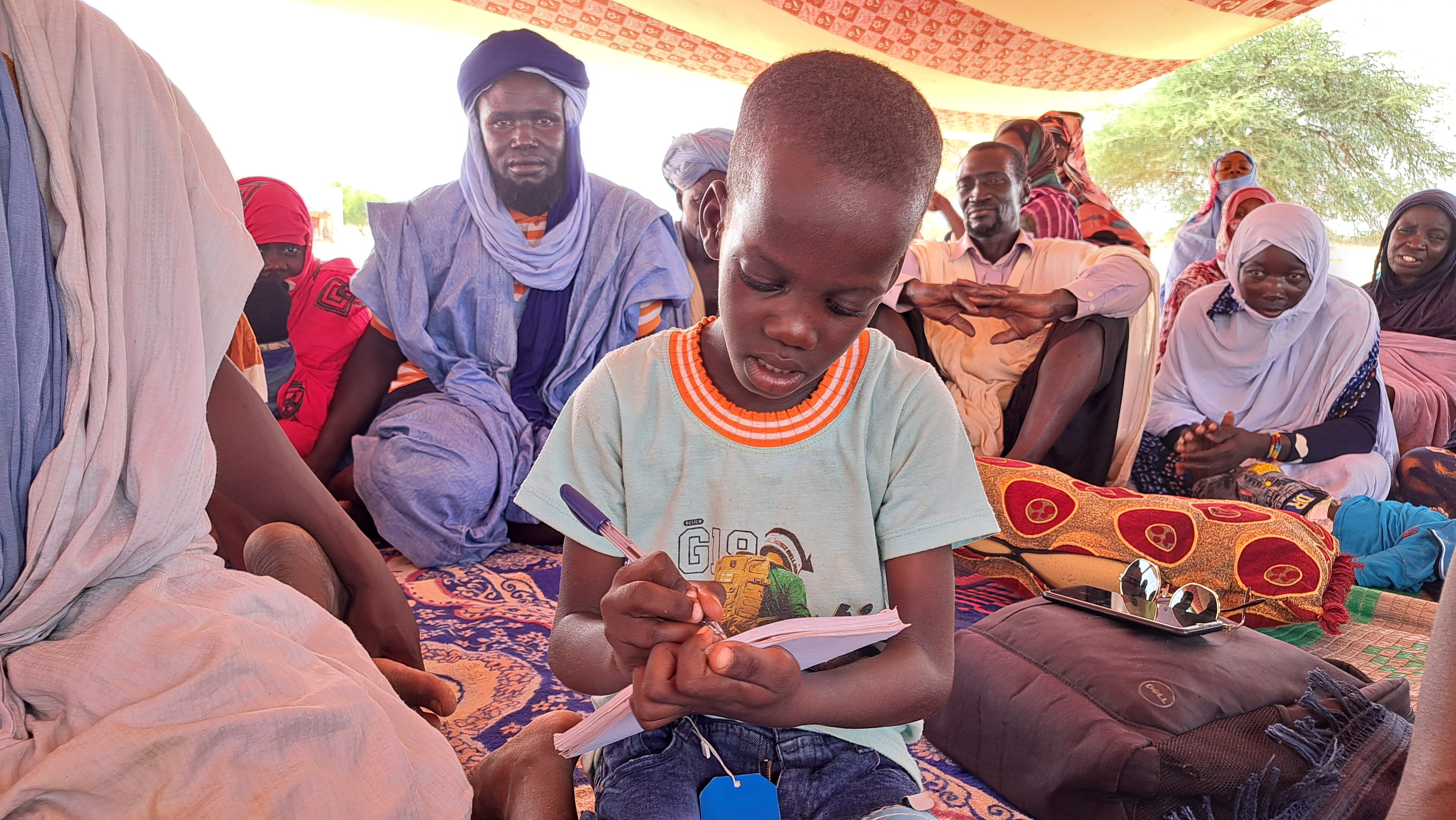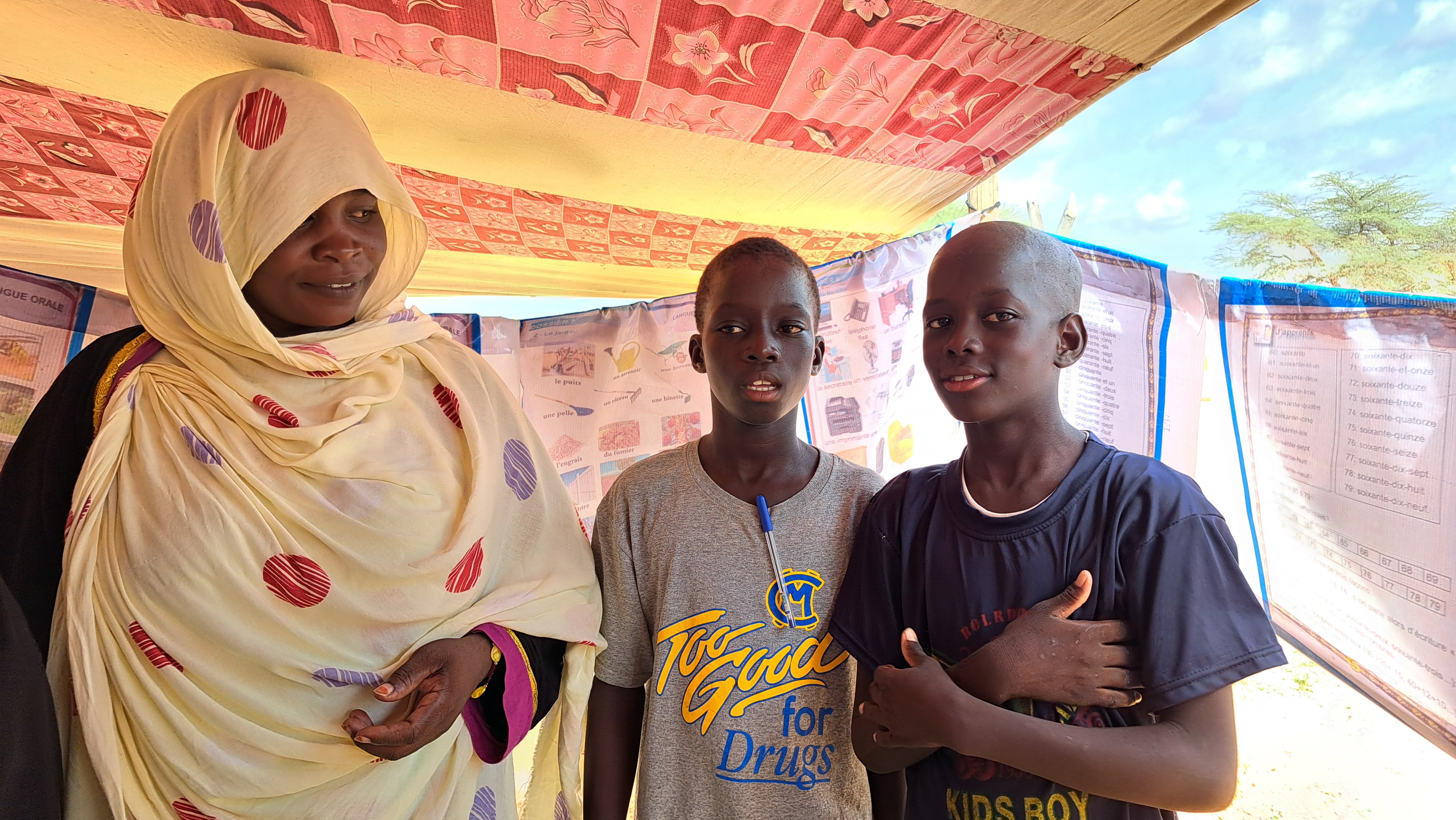‘I want to be a teacher when I grow up' - World Vision Mauritania

In Maghtafera, around sixty children have learned to write, read, count and calculate in just six months. They have taken part in catch-up sessions set up by World Vision Mauritania. We met them in one of the sheds set up for the occasion almost in the middle of the village. The children said they were proud of themselves. They added that they were now able to look forward to a bright future. This is possible thanks to the catch-up sessions during which four teachers trained girls and boys in French and Arabic.
"I want to be a teacher when I grow up", said Aminetou, telling me about the catch-up sessions. Aminetou learnt the alphabet like the other children, but also counting and arithmetic, which made her parents proud. "They said it was excellent. My brother says I'm a good pupil and encourages me to keep up the good work," adds Aminetou.
With the catch-up sessions, World Vision Mauritania's Aghorat programme area has responded to a real need expressed in Maghtafera. This village of around 2,800 inhabitants is located in central Mauritania, more than 8 hours by car from the capital, Nouakchott. And here, the children do not have the means to follow the primary school curriculum because the cycle is incomplete. There are only two classes.

At the age of 8, Oumar is so happy to have been able to learn to write that he takes my notebook and starts writing the letters of the alphabet in order. The audience who had come to take part in the meeting was moved, and some of us couldn't help but smile looking at him.

"I came every day. It was easy to learn my lessons. I told my friends that I was learning the alphabet and now I'm teaching it to others", says Oumar, proud of himself.
The teachers were chosen by the villagers. They explained that they were delighted to agree to teach the children who were outside the school curriculum, so as to give them a chance to enter it the following year.
Marieme is one of the French teachers, and is also the village midwife. She believes that all children are hard-working, even if some need more attention than others.

In her opinion, the catch-up sessions have also had an impact on the children's behaviour in their everyday lives: " What is certain is that there is a change in the children's behaviour. They are (more) focused in their everyday lives. They don't play in the street any more".
When it is very hot, it is difficult for the children to concentrate or even to attend the lesson because they are not in a school that protects them from heat, cold or rain, the teachers regret.
From the 2024-2025 school year, some of these children will be joining the school curriculum. For their part, the residents of Maghtafera hope that one day the primary school curriculum will be complete in the village, with the number of teachers and classrooms needed to educate their children.
Written by Mila Kimbuini Malonga, Regional Digital and Content Manager (World Vision West Africa)